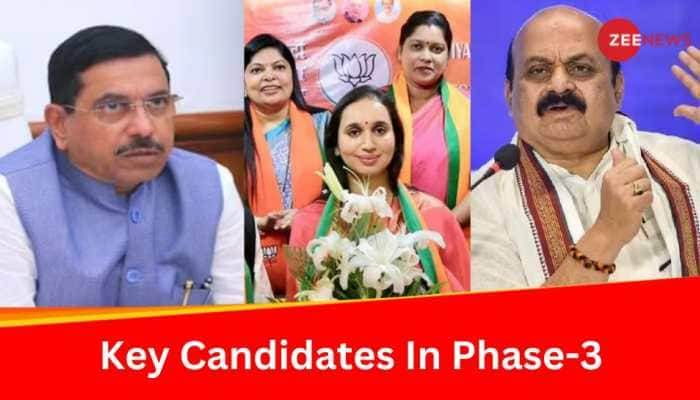Bharat Petroleum to set up 2,000 EV charging stations on 100 busiest national highways
Bharat Petroleum to invest around Rs 200 crore this fiscal year to set up 100 fast electric vehicles charging corridors along 100 busiest national highways.
- Bharat Petroleum plans to set up 100 fast electric vehicles charging corridors
- The company recently opened its first EV charging corridor along the Chennai-Trichi-Madurai highway
- Bharat Petroleum plans to invest around Rs 200 crore to set up EV stations
Trending Photos
) Image for representation
Image for representation Public sector oil marketing company Bharat Petroleum plans to set up 100 fast electric vehicle charging corridors having 2,000 stations along the busiest 100 national highways. The company recently said that it will invest around Rs 200 crore this fiscal year to set up the same.
The company has recently opened its first EV charging corridor along the Chennai-Trichi-Madurai highway with one charging unit. The second corridor will come upon the Kochi-Salem section of the National Highway 47 within the next two months, BPCL executive director for retail P S Ravi told PTI on April 13.
Ravi said in case a charging unit does not need a booster transformer, such a unit which will be a full-fledged centre offering restrooms, refreshments/food court, among other amenities can be ready at a cost varying from Rs 7-12 lakh, and if the unit needs a transformer then the cost will go up to Rs 25 lakh.
Also read: Toyota bZ4X electric SUV unveiled, first EV since 2014 RAV4
"Given this cost variance, we have budgeted for around Rs 200 crore investment this fiscal as we plan to set up as many as 2,000 fast-charging stations across 100 corridors by March 2023," Ravi said. He said for the long-term, the company has plans to have 7,000 fast EV charging stations by FY25. But he did not disclose the investment details.
He said the third corridor will most probably be the Mumbai-Bengaluru National Highway 4 and will have multiple units as the highway has the highest traffic. Ravi said the national oil refiner and marketer, which is the second-largest player with close to 30 percent retail market in petrol and diesel, hopes that the EV ecosystem will grow faster than forecasted earlier, and the company wants to play a big role in setting up the basic infrastructure for this ambitious drive.
The government has also announced plans to push domestic manufacturing and sales of electric vehicles. Ravi said his company will also seek some incentives from the Centre or the state government as the charging stations will not be commercially viable due to low footfalls in the initial stage.
Last week, auto dealers' body FADA had said that electric vehicle retail sales zoomed over three-fold in FY22 to 4,29,217 units from 1,34,821 units in fiscal 2021 and from 1,68,300 units in FY20. Electric two-wheelers, especially scooters contributed to a majority of the EV sales.
Also read: Indian Railways start 8 special trains following Bagdogra airport flight suspension
According to the Federation of Automobile Dealers Associations (FADA), electric passenger vehicle retail sales stood at 17,802 in FY22, up over three-fold from 4,984 units in FY21. Home-grown auto major Tata Motors leads the segment with retails of 15,198 units and a market share of 85.37 percent, up from 3,523 units in FY21, followed by MG Motor India selling 2,045 units and a market share of 11.49 percent.
It had retailed 1,115 units in FY21. Mahindra & Mahindra and Hyundai stood at third and fourth places with dispatches of 156 and 128 units respectively, both settling for a market share of less than 1 percent.
EV two-wheeler retail sales stood at 2,31,338 units, a jump of over five-fold from 41,046 units in FY21, and Hero Electric led the segment with 65,303 units, grabbing 28.23 percent share, followed by Okinawa Autotech (46,447 units) and Ampere Vehicles with (24,648 units). Hero MotoCorp-backed Ather Energy stood at fourth position by selling 19,971 units. While Ola Electric was in the sixth position selling 14,371 units, TVS Motor sold 9,458 units taking the seventh position.
(With inputs from PTI)







)
)
)
)
)
)
)
)
)
)
